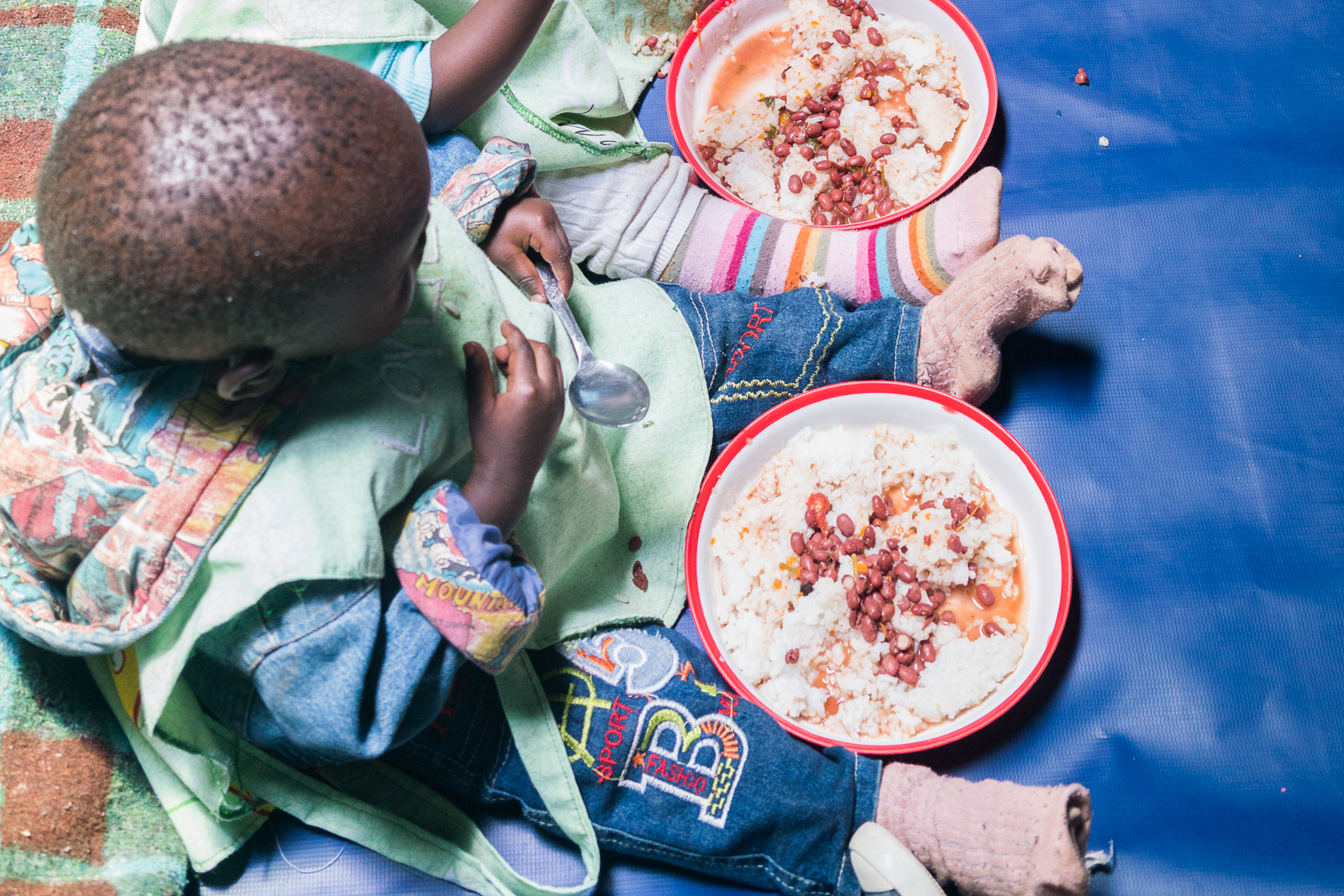
Sweet potato project gives vital vitamin boost to preschool children in Malawi
Childcare, Early childhood development, Health and nutrition
In an initiative to tackle malnutrition, children at a charity's preschools help to plant and harvest the healthy vegetables then eat them for lunch.
A charity in Malawi is growing sweet potatoes to ensure young children get essential Vitamin A.
The staple diet of nsima – a porridge made from cassava or maize flour – has little protein and very few vitamins, so the children are not getting the full range of nutrition they need in the early years.
RIPPLE Africa is a charity tackling malnutrition in Malawi, a major health issue for mothers and children there. Its Plant, Share, Eat, initiative aims to bring the essential Vitamin A into the diets of the children at its preschools.
Pam Haigh, UK General Manager for RIPPLE Africa, said: “Malnutrition is a major problem in Malawi as the staple diet is nsima, which has very few vitamins.
“Around 60% of preschool children aged between two and five are Vitamin A-deficient.
“Our charity ensures that the 800 children who attend our preschools receive a Vitamin A-enriched meal every day by giving their pupils nutritious orange-fleshed sweet potatoes at lunch time.”
Good nutrition is one of the key areas of nurturing care that children under five need to grow and flourish.
Theirworld’s #5for5 campaign spotlights the need for leaders to invest in early childhood development and pre-primary education.
Vitamin A has been found to be a low-cost intervention to tackle malnutrition in the developing world.
The United Nations children’s agency UNICEF says Vitamin A deficiency is the leading cause of preventable childhood blindness and increases the risk of death from common childhood illnesses such as diarrhoea.
The World Health Organization has classified Vitamin A deficiency as a public health problem affecting about one in three children aged three to six – with the highest rates in sub-Saharan Africa (48%) and South Asia (44%).
In a series on child survival, the medical journal The Lancet listed Vitamin A supplementation among the key interventions achievable at a large scale that have proven potential to reduce the number of preventable child deaths each year.
Sweet potatoes are an excellent source of Vitamin A. RIPPLE Africa’s eight pre-schools each have their own allotments where sweet potato vines are planted.
Pam Haigh said: “The children get involved with planting and harvesting the potatoes and the teachers are paid a small allowance to care for the plants and cook the sweet potatoes.
“These vines have been provided to the schools by RIPPLE Africa as part of a new initiative to encourage local farmers to grow more nutritious varieties of sweet potatoes.
“These varieties are higher-yielding and much higher in Vitamin A than those normally grown in the area.”
At the end of each growing season, surplus vines are shared with neighbouring families, spreading the benefits. Hence the title of the charity’s project – Plant, Share, Eat.

Haigh said: “Most of the preschool children are up at dawn and help with chores such as sweeping the yard and collecting water before they go to school.
“They then walk to school on their own or with an older sibling ready for the start of the school day at 7.30.
“Their day, just like every preschool, is all about learning letters and numbers, lots of singing and dancing and fun outside on the swings and in the sandpit until school finishes at 10.30.”
Many children won’t have eaten breakfast before they get to school, as most families only have two meals a day.
“So the hot nutritious lunch is welcomed by the children and is one of the reasons that attendance at preschool is so good,” added Haigh.
More news

MyBestStart programme gives young girls the education they deserve
